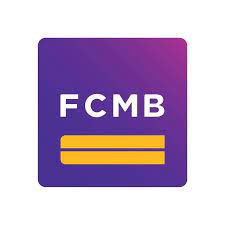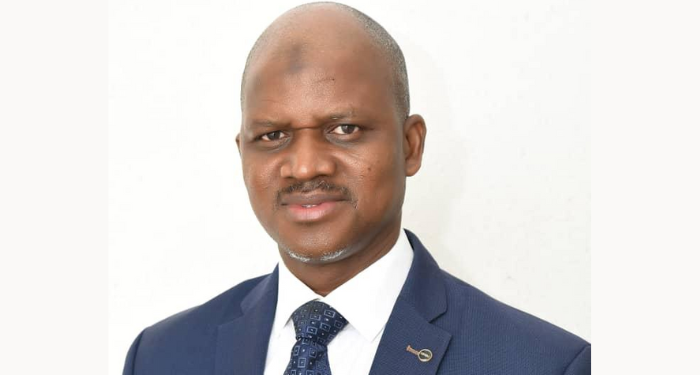Business
FCMB to pay N540 million damages awarded to Omale.

FCMB to pay N540 million damages awarded to Omale.
The Court of Appeal in Abuja at the weekend ordered the First City Monument Bank (FCMB) to pay N540million damages over the defamation of Prophet Emmanuel Omale and his wife, Deborah, into interest yielding bank account of the Chief Registrar of the court.
The three-man panel of the appellate court in its unanimous ruling read by a Justice of the Court of Appeal (JCA), Justice Mohammed Shuaibu, further directed FCMB to deposit the said N540million with the Court Registrar’s account within 48 hours.
The Court of Appeal made the order in the Certified True Copy of its Enrolled Order dated February 2, 2024 and obtained on Sunday, February 4, 2024.
The appellate court gave the directive while granting conditional stay of execution on the payment of the said N540million damages, pending the determination of the FCMB’s appeal in the matter.
The FCMB has appealed against the judgement of Justice Yusuf Halilu of the Federal Capital Territory (FCT) High Court in Abuja, asking the Court of Appeal to set aside the verdict of the lower court on the payment of N540million damages.
The FCMB is further asking the appellate court to stay execution of the lower court’s judgment and restrain the Omales from taking steps to enforce the judgment in their favour. However, after listening to the arguments of the parties, the Court of Appeal directed in its enrolled order as follows:
1. The application is granted as prayed in terms of the 1st prayer in the Appellant’s motion filed on 3/11/2022.
2. Consequently, conditional stay of execution of the judgment is hereby granted to the Appellant. The condition being that the judgment sum shall be deposited into an interest yielding bank account of the Court to be opened by the Chief Registrar of this Court within 48 hours of the grant of this Order.
3. Appeal is adjourned to a date to be communicated to Counsel by the Registry”.
Dissatisfied with the judgment of the FCT High Court, the FCMB through his lead lawyer, Dr Wale Olawoyin (SAN), filed a Notice of Appeal dated October 5, 2022 against the Final Judgment. In the its Notice of Appeal, the FCMB raised serious constitutional and other weighty legal issues, saying that it would be highly prejudiced by any step(s) to execute or enforce the Final Judgment as the action would render nugatory, its appeal before the appellate court. According to the FCMB, “there is a real and high risk that it would suffer irreparable damage in the event that its application is refused and the appeal is successful.”
Opposing the FCMB’s motion for stay of execution of the lower court’s judgment, the Omales, through their lawyers, Chief Goddy Uche (SAN) and Kanayo Okafor, argued that the bank’s application was brought in utmost bad faith to merely frustrate and delay without any justification, the enjoyment of the fruits of the judgment in their favours.
The Omales said, “That the judgment Appellant/Applicant’s appeal has little or no chance of success in the light of the admissions and apologies and tacit acceptance of its negligence in this
matter.
“That in the alternative, we concede to a conditional stay of execution, for the Appellant/Applicant to deposit the judgment sum within 48 hours into an interest yielding bank account to be opened by the Chief Registrar of this Honourable Court, in any other commercial bank, except the judgment/debtor.”
Justice Yusuf Halilu of the Federal Capital Territory (FCT) High Court had on October 4, 2022, ordered the FCMB to pay N540.5 million damages to Prophet Omale of the Divine Hand of God Prophetic Ministry and his wife, Deborah, over false claim that they laundered N573 million for the former Acting Chairman of the Economic and Financial Crimes Commission (EFCC), AIG Ibrahim Magu (rtd). In his judgment over the suit by Omale and other claimants against the FCMB, Justice Halilu held that the bank breached its “duty of care to the claimants,” the Omales and their church.
The judgment was on the suit marked: FCT/HC/CV2541/2020 filed by Omale, his wife and the church. The judge held that the evidence before the court showed that the bank admitted error in its report to the NFIU of entries in the account of Divine Hand of God Prophetic Ministry which was accused of laundering money on Magu’s behalf.
Justice Halilu further held that the bank claimed that the purported N573 million was wrongly reflected as credit entry in Divine Hand of God Prophetic Ministry’s account by its reporting system, which it recently upgraded.
The judge also held that FCMB admitted the error, which brought incalculable damage to the reputation of the claimants both within and outside the Nigeria – depleting their church’s membership.
Justice Halilu said the claimants provided sufficient evidence to establish case of negligence against FCMB.
Consequently, the judge awarded N200 million as aggravated damages; N140.5 million as specific damages and N200 million as general damages.
During the investigation of Magu by a Presidential Investigation Committee on the EFCC Federal Government Recovered Assets and Finances from May 2015 to May 2020, it was alleged that an investigation by the Nigerian Financial Intelligence Unit (NFIU) revealed that Magu, who is now retired from the police, paid N573 million into Omale’s church’s account.
It further alleged that the funds were used to purchase property for him in Dubai, the United Arab Emirates (UAE).
Magu was also facing a barrage of similar allegations of a presidential investigative panel led by a former President of the Court of Appeal (PCA), Justice Ayo Salami.
It is instructive to note that former President Muhammad Buhari refused to release the report of any of the panels to enable the public to have first-hand information about Magu’s alleged culpability or otherwise in the charge and many others levelled against him.
The Salami-led panel, which conducted its months-long hearing in secrecy, is believed to have been influenced by the former Attorney-General of the Federation (AGF) and Minister of Justice, Abubakar Malami (SAN), to get Magu out of office over crisis of confidence and wide differences they shared on diverse issues.
Magu, who was suspended as Acting Chairman of the EFCC in the wake of the probe by Salami’s panel, was never recalled or held accountable for any infraction after the panel submitted its report to Buhari.
The other panel, titled, ‘Final Report of the Presidential Investigation Committee on the EFCC Federal Government Recovered Assets and Finances from May 2015 to May 2020,’ was said to be headed by Abdullahi Ibrahim, a former Attorney General and Minister of Justice.
It claimed that Magu, through a pastor named Omale, had been laundering public funds to foreign countries.
“As an unknown pastor, the NFIU’s report showed the huge movement of funds ranging from N573, 228,040.41,” the report claimed.
The report further delved into other allegations against Magu including- failing to cooperate with foreign authorities over probe on former Minister of Petroleum, Diezani Allison-Madueke, and circulation of disproportionate figures on recovered loot.
The report also accused Magu of allegedly failing to properly account for a recovered N551 billion by the EFCC while he was its acting chairman.
The report featured prominently in the course of the defamation hearing filed by the Omales to clear their names.
Business
Federal Mortgage Bank of Nigeria disburses N440 billion, delivers 39,000 homes since 1993 – Shehu Osidi

Federal Mortgage Bank of Nigeria disburses N440 billion, delivers 39,000 homes since 1993 – Shehu Osidi
The Federal Mortgage Bank of Nigeria (FMBN) has revealed it has disbursed N440 billion and delivered approximately 39,000 new homes under the National Housing Fund (NHF) scheme since its re-establishment in 1993.
This achievement was highlighted by the bank’s Managing Director and Chief Executive, Mr. Shehu Osidi, during his presentation at the 18th Africa International Housing Show in Abuja.
His presentation, titled “Financing the Housing We Need: A New Dawn at FMBN as an Institutional Enabler,” detailed the bank’s accomplishments in housing finance.
Osidi noted that, in addition to the N440 billion disbursed and the 39,000 new homes delivered, FMBN has provided around 25,500 mortgages and extended over 120,000 micro-housing loans, all offered under a single-digit interest rate lending regime.
“Since its re-establishment in 1993, the Bank has delivered about 39,000 new homes, about 25,500 mortgages and over 120,000 micro housing loans, all within a single-digit interest rate lending regime.
“Under the National Housing Fund (NHF) Scheme, it has registered 26,350 organisations and over 5.8 million cumulative contributors with over 1 million accounting for the self-employed sector.
“The Bank has disbursed the cumulative of N440 billion under its various loan windows to drive affordable housing finance for the Nigerian economy,” Osidi said.
Additionally, the FMBN Managing Director disclosed that in compliance with the provisions of the National Housing Fund Act, the bank has refunded N84.8 billion to 492,604 contributors who exited the scheme.
More insights
Highlighting more achievements of the Federal Mortgage Bank of Nigeria (FMBN), Osidi noted the recovery of N12 billion from the Federal Ministry of Finance.
This recovery was part of the N19 billion in wrongful deductions of National Housing Fund (NHF) contributions, which had been previously misconstrued as revenue under the 40% deduction regime. He further mentioned that FMBN continues to engage with relevant authorities to halt these deductions and recover the remaining balance of the trapped NHF funds.
Additionally, he explained that FMBN has expanded its loan products from mortgage financing to include housing construction, micro-housing financing, and rent-to-own options. New additions such as Home Improvement and Rent Assistance loans specifically target the non-salaried informal sector.
Osidi highlighted that the bank’s clientele now includes primary mortgage banks, real estate developers, housing cooperatives, and individual NHF contributors. Despite modest numbers, he emphasized that FMBN remains a key player in the housing sector.
He also outlined the executive management’s seven-point agenda, which focuses on enhancing automation, promoting cost efficiency, improving credit quality, effective project management, and expanding strategic partnerships to transform FMBN into a responsive and reliable institution.
Business
Analysis: Fidelity Pension Managers 2023 audited company and fund accounts

Analysis: Fidelity Pension Managers 2023 audited company and fund accounts
Fidelity Pension Managers recently published its 2023 audited accounts, providing a summary overview of its financial health and fund performance.
This report provides a summary review and presents key financial highlights, financial ratios, fund performance, and the trend in the number of Retirement Savings Account (RSA) holders.
Financial Highlights
Total Revenue: Total revenue for the company rose 23% to ₦2.59 billion in 2023, up from ₦2.1 billion in 2022. From the reports, this increase is attributed majorly to higher fee income generated from the pension funds it has under management.
Profit After Tax (PAT): PAT rose 26% to ₦666 million, up on the previous year’s 21% rise.
Operating Expenses: Operating expenses rose slower than revenue and PAT by 22% to ₦1.76 billion from ₦1.44 billion, leading to a slight drop in the company’s cost-to-income ratio, which fell to 67.98% from 68.57%. The company seems to be relatively prudently managing financial resources, amidst rising costs and inflationary pressures.
Shareholder’s Funds: The company’s shareholders funds ended the year at ₦5.95 billion in 2023 up 5% from the ₦5.64 billion in 2022.
Return on Equity (ROE): ROE was a very low 11.21%. Whilst this is a slight improvement on 2022’s 9.41%, the company does not seem to be efficiently deploying shareholders’ equity to generate profits.
Financial and Fund Highlights

Corporate Audited Annual Results

Financial Ratios

Fund Performance Highlights
RSA Funds Performance: Fidelity Pensions offers six of the seven regulated RSA pension funds to the public. Notably, all six funds put in a better performance than the previous year, whilst only four funds out-performed the industry benchmark returns (see our article on benchmark returns here).

5-Year Audited Pension Funds Performance

Number of RSA Holders
RSA Growth: The growth in the number of RSA holders was another highlight of the year. Fidelity Pension Managers saw an increase of 2.48% in RSA holders, adding 8,005 new accounts to close the year at 331,124 RSA holders.


Demographic Analysis
Age Distribution: The majority of 330,000 RSA holders (83.9%) registered in 2023 fell within the age bracket of <30 years to 39 years, indicating a young and growing industry subscriber base. Of the 2023 registrations, Fidelity Pension Managers recorded 2.43% of this growth.

Conclusion
Fidelity Pension Managers has demonstrated improved financial growth in 2023, marked by increased revenue, higher profitability, and a growing RSA customer base. However, the company remains constrained by low assets under management, which limits its fee-generating potential. To overcome this challenge, Fidelity Pension Managers must focus on enhancing the performance of the funds it manages and attracting more RSA holders. Improved fund performance will not only benefit current RSA holders but also make Fidelity Pensions an attractive option for those looking to transfer their pensions.
Business
Zenith Bank maintains its position as Nigeria’s top bank in terms of Tier-1 capital for the 15th consecutive year.

Zenith Bank maintains its position as Nigeria’s top bank in terms of Tier-1 capital for the 15th consecutive year.
Zenith Bank Plc for fifteenth consecutive year has retained its position as the Number One Bank in Nigeria by Tier-1 Capital in the 2024 Top 1000 World Banks’ Rankings, published by The Banker Magazine.
This ranking places Zenith Bank Plc as the 565th Bank globally with a Tier-1 Capital of $2.01 billion. The rankings, published in the July 2024 edition of The Banker Magazine of the Financial Times Group, United Kingdom, recognise Zenith Bank’s continued financial strength and stability.
They are based on the 2023 year-end Tier-1 capital of banks globally and remain the primary source for global bank financials used by most international organisations in their assessments of banks.
Tier-1 Capital describes capital adequacy, the core measure of a bank’s financial strength from a regulator’s perspective. According to the ranking, Tier-1 Capital, as defined by the latest Bank for International Settlements (BIS) guidelines, includes loss-absorbing capital, i.e., common stock, disclosed reserves, retained earnings, and minority interests in the equity of subsidiaries that are less than wholly owned. A strong Tier-1 capital ratio boosts investor and depositor confidence, indicating the Bank is well-capitalised and financially stable.
Commenting on this achievement, the Group Managing Director/CEO of Zenith Bank Plc, Dame (Dr.) Adaora Umeoji, OON, said, “We are deeply honoured to be recognised as the Number One Bank in Nigeria by Tier-1 Capital for the fifteenth consecutive year.
“This recognition is a testament to our strategic focus on sustainable growth, innovation, and customer satisfaction. It also emphasises our resilience and strength in navigating the ever-evolving financial landscape.
“Our dedicated team of professionals has remained steadfast in ensuring that we maintain our position at the forefront of the banking industry.” She extended her profound and sincere appreciation to the Founder and Chairman, Dr. Jim Ovia, CFR, whose visionary and transformative leadership has played a pivotal role in cultivating a resilient and thriving establishment.
“She also expressed her deep appreciation for the board’s insightful governance, the staff’s relentless dedication, and the unwavering loyalty of the bank’s esteemed customers to the Zenith brand.
Zenith Bank’s financial performance for the year was driven by a remarkable triple-digit growth of 125% in gross earnings, from N945.6 billion reported in 2022 to N2.132 trillion in 2023.
This growth led to an improved market share in both the retail and corporate segments despite a persistently challenging macroeconomic environment. The increase in gross earnings was primarily due to growth in interest and non-interest income. Interest income growth was attributed to the increase in the size of risk assets and their effective repricing, while non-interest income was driven by significant trading gains and gains from the revaluation of foreign currencies.
Zenith Bank recently commenced recapitalisation efforts with the conclusion of its Capital Markets Day held on 11th July 2024. It aims to raise the least amount of capital amongst its peers at N230 billion, considering it already maintains a robust capital base of N270.7 billion.
The Bank remains dedicated to supporting the growth of the Nigerian economy and providing its numerous customers with innovative and efficient banking solutions.
Zenith Bank’s track record of excellent performance has continued to earn the brand numerous awards, with these latest accolades coming on the heels of several recognitions. These include being recognised as the Number One Bank in Nigeria by Tier-1 Capital for the fourteenth consecutive year in the 2023 Top 1000 World Banks Ranking, published by The Banker Magazine.
The Bank was also awarded the Bank of the Year (Nigeria) in The Banker’s Bank of the Year Awards for 2020 and 2022; and Most Sustainable Bank, Nigeria in the International Banker 2024 Banking Awards.
Further recognitions include Best Bank in Nigeria for three consecutive years from 2020 to 2022 in the Global Finance World’s Best Banks Awards and Best Commercial Bank, Nigeria for three consecutive years from 2021 to 2023 in the World Finance Banking Awards.
Additionally, Zenith Bank has been acknowledged as the Best Corporate Governance Bank, Nigeria, in the World Finance Corporate Governance Awards for 2022 and 2023, and ‘Best in Corporate Governance’ Financial Services’ Africa for four consecutive years from 2020 to 2023 by the Ethical Boardroom.
The Bank’s commitment to excellence saw it being named the Most Valuable Banking Brand in Nigeria in the Banker Magazine Top 500 Banking Brands for 2020 and 2021, and Retail Bank of the Year for three consecutive years from 2020 to 2022 at the BusinessDay Banks and Other Financial Institutions (BAFI) Awards.
The Bank also received the accolades of Most Sustainable Bank, Nigeria, in the International Banker 2023 Banking Awards, Best Commercial Bank, Nigeria and Best Innovation in Retail Banking, Nigeria, in the International Banker 2022 Banking Awards.
Zenith Bank was named Bank of the Decade (People’s Choice) at the ThisDay Awards 2020, Bank of the Year 2021 by Champion Newspaper, Bank of the Year 2022 by New Telegraph Newspaper, and Most Responsible Organisation in Africa 2021 by SERAS Awards.
-

 News2 years ago
News2 years agoWhat Led Us To Choose Peter Obi As Our Candidate?-Middlebelt Forum
-

 BREAKING NEWS10 months ago
BREAKING NEWS10 months agoKey Insights for the Upcoming 2023/2024 UEFA Champions League Campaign
-

 Entertainment9 months ago
Entertainment9 months agoTaylor Swift Skips Travis Kelce’s Big Game to Prepare for ‘Eras Tour’
-

 News6 months ago
News6 months agoPaul Agbonze Obazele Addresses Labor Party Leaders in Edo Central Senatorial District
-

 BREAKING NEWS11 months ago
BREAKING NEWS11 months agoVan Gaal Alleges 2022 World Cup Rigged in Favor of Messi and Argentina
-

 News1 year ago
News1 year ago“New King of Serie A,” Tinubu hails Osimhen on winning the Serie A Title
-

 BREAKING NEWS12 months ago
BREAKING NEWS12 months agoBayern Munich Engages in Discussions for the Acquisition of David De Gea from Manchester United
-

 News2 years ago
News2 years agoHappy 62nd Anniversary of Nigeria’s Independence!










